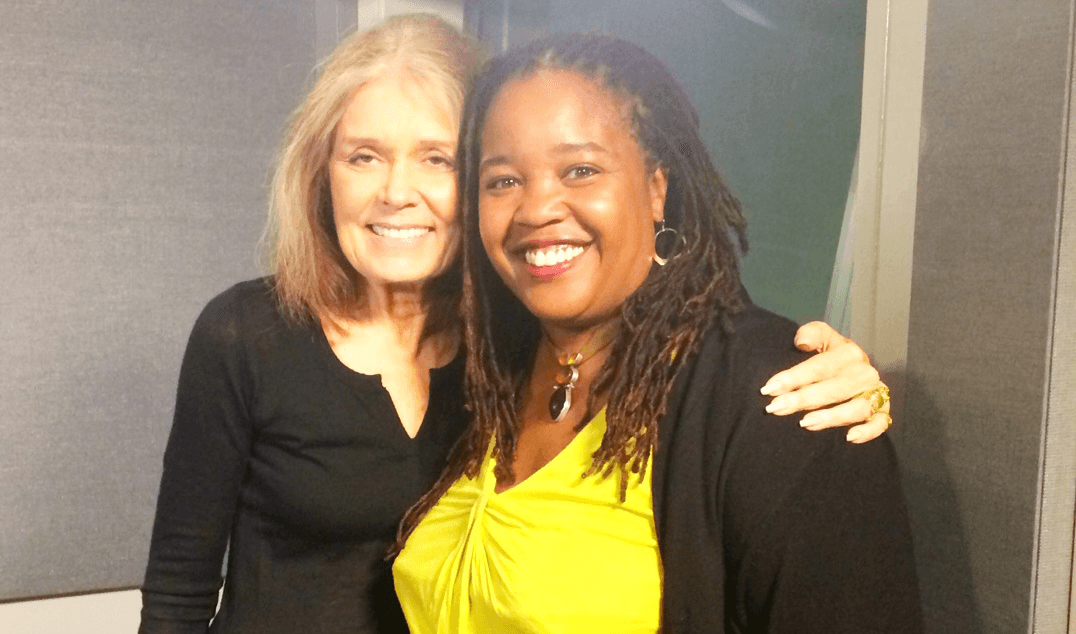Gloria Steinem continues to fight for equality for all women
Of the many things used to describe author, activist and gender equality icon Gloria Steinem, “family woman” is not usually one of them. But as someone who’s been privileged to know her since I moved to New York to work at Newsweek in the 1990s, that’s precisely how I think of her.
I can’t say for sure if we were first introduced by Amy Richards, then the co-founder of the group Third Wave, but Richards was pivotal to my getting to know Steinem personally and understanding her as more than a lauded myth, or, by critics, a mouthy broad who needed to be put in her place. Richards is certainly a modern “family woman.” She continues to do her own feminist activism, writing and entrepreneurship, while she and her boyfriend/partner live together and raise their children. Richards got to know Steinem when Richards was in her 20s — by cat-sitting. They developed a friendship that evolved into eight years of sharing a home (full- or part-time, as they travelled) and with Richards doing freelance work for Steinem.
Now, Richards co-owns a lecture agency, Soapbox, and she was one of the producers of the HBO documentary “Gloria Steinem: In Her Own Words.” When I was in my 20s, I took in, rent-free, an even younger journalist who needed a place to stay because of the unpaid internships needed to break into the broadcast business. Seeing Steinem as part of this virtuous circle that allows women (and men) to start careers was part of my education in shared nurturance and responsibility.
My interview with Steinem launches Season 2 of One with Farai from PRI Soundworks. I could name all of the things Steinem has done, from infiltrating the Playboy Club to marching in solidarity with feminists of color like Flo Kennedy to writing a series of powerful books including “Doing Sixty and Seventy,” “Outrageous Acts of Everyday Rebellion” and “Revolution from Within.” I asked Steinem whether she considered herself a family woman, in the sense of having a “family of choice,” including but not limited to Richards. Steinem responded:
I often use the term chosen family. Actually, there was a scholar of the family [Dorothy Dinnerstein] who said, "your biological family serves reliable purposes, obviously, to nurturing, seeing people of different ages — because in the rest of your life you might tend to pick people who are a similar age — what it’s like to be a baby, an old person…you know, obviously your family of birth plays an important role.
And then [Dinnerstein] said, “and it’s important that you learn how to love, and how to get along with and even love people you don’t like. That, for the future of the human race, was really important.” And that was such a liberation to me because we tend to think that we're supposed to agree with our biological family. Yet in a way, it’s a function of the family that we don’t [always agree] and get along and love each other anyway.
So we then also make chosen family of people who share values and interests and support us in a different way, and I think we all need that. Everybody needs that, especially people in social justice movements. The world doesn’t quite run the way — to put it mildly. People for whatever reason are on the periphery need a time of being in the center to feel supported.
Our 25-minute interview for One with Farai also continued with a discussion of women, workplace, celebrity feminism (from Emma Watson to Beyonce), and family. She stated, “The workforce was adapted to male human beings…. We have to make room for women who want to have children and men who want to be real parents. We have to transform the idea of what work is. Every European country is ahead of us, Canada is ahead of us in this regard. The idea of the worker as somebody who doesn’t care about children and is just keeping is paycheck to keep them in house and home is just not true.”
As life/work/family issues continue to be at the core of many societal debates, from corporations paying for egg-freezing to the fact that the US (unlike, say Afghanistan) has no federal law guaranteeing maternity leave, Steinem strikes me as not only a warrior for gender equality, but also a family woman of the highest sort. Sometimes it’s easier to champion people broadly than to get along with individuals, but Steinem has managed to encompass both in her 80-years-young-and-counting life. As she puts it, “To say you want equality for yourself is daring, but to say you want equality for all women is bigger than a revolution.” She not only talks the talk; she walks the walk — and in a land where many promise and fewer deliver, that’s worth celebrating.
